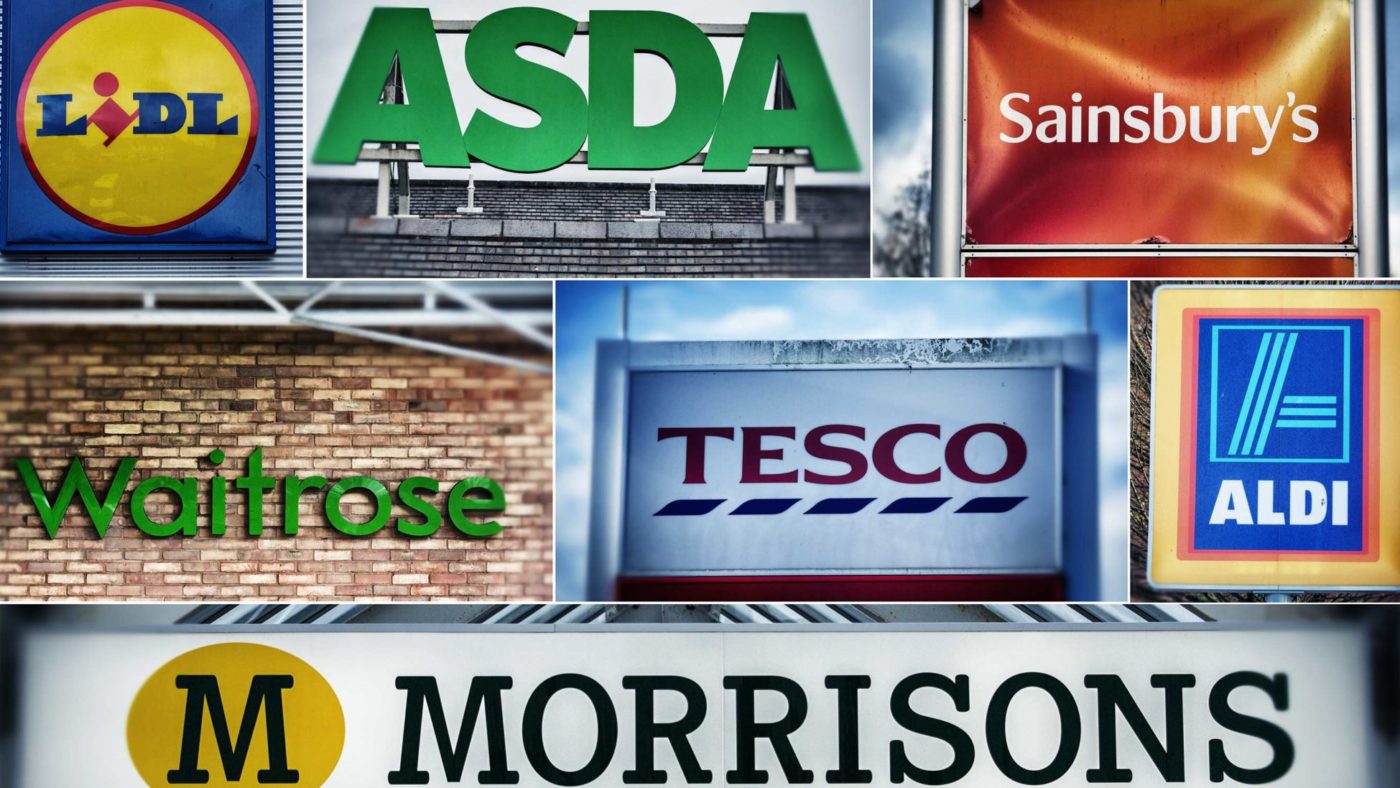This week CapX is republishing some of our favourite articles of the year. This piece first appeared on July 3.
Tesco teaming up with Carrefour is the latest in a series of mergers, acquisitions and partnerships announced following Amazon’s bold foray into the grocery sector. The prospect of intense price competition from the online retailer has forced competitors to find new efficiencies and improve their offerings. In the US, Target and Walmart are trialling same-day delivery services, while over here Asda and Sainsbury’s are merging to find economies of scale and cut costs.
The evidence suggests that most mergers in the relatively unconcentrated grocery sector benefit consumers. America’s antitrust enforcer, the FTC, reviewed 14 mergers and found a clear trend. Mergers in highly concentrated markets (four or fewer firms ≈ 100% market share) tended to increase prices, but mergers in unconcentrated or moderately concentrated markets tended to lead to price falls.
For context under the FTC’s methodology the UK’s overall supermarket sector is currently just at the borderline of unconcentrated or moderately concentrated depending on whether you count shops like M&S. There may be some local areas where competition is weaker and consumers have fewer options, but Amazon’s entry, which isn’t constrained by the “footprint” of a single store, will boost competition across the UK.
When Safeway and Morrisons merged to create the Big Four in 2004, consumers got an immediate windfall. Morrisons customers saw prices fall by around 15% and competition between the Big Four intensified. Since 2004, the market has become even more competitive with Aldi and Lidl shaking things up.
The ability to access new bulk buying discounts, gain more heft with major suppliers like Unilever and Kraft Heinz, and find new economies of scale in distribution typically lowers costs and, as long as the market isn’t highly concentrated, lowers prices.
The prospect of a price war is good news for consumers, but the response has been mixed. There’s now a popular movement kicking back against corporate mergers. Dubbed by their critics as “Hipster Antitrust”, so-called Neo-Brandeisians argue that competition policy has been too focused on lowering prices for consumers. Instead, they want authorities like the CMA and FTC to take the welfare of small suppliers into account. Their ideas are gaining currency – when Sainsbury’s announced it’s takeover of Asda, Business Secretary Greg Clark wrote to the CMA and asked that they consider the “possible impact on the supply chain”.
We should, of course, worry if buyers become too powerful. In cases of monopsony (one buyer, many sellers), a powerful firm can reduce total output by driving prices below their competitive levels. But we shouldn’t intervene out of concern for the supplier, but because suppressing output ultimately raises prices.
The Neo-Brandeisians go further. They attack companies like Amazon not because they suppress output and raise prices, but because they believe Amazon’s moves to cut prices come at too high a social cost.
Let’s be clear. Deviating from the tried and tested consumer welfare approach will lead to consumers paying more. The movement’s namesake Justice Louis Brandeis spoke out against “the curse of bigness” and defended laws that protected smaller groceries from almost certainly more efficient chains. Brandeis was at least honest that these policies would result in higher prices, but it would be a brave politician who openly called for making things more expensive.
As antitrust scholar Herb Hovenkamp puts it “a neo-Brandeis approach whose goals were honestly communicated could never win in an electoral market”. It would almost certainly be a regressive approach, hitting the poor hardest. Take the chain stores that Brandeis hobbled in order to protect smaller grocers.
Walmart gets a bad rap in the media, but a 2005 paper by economists Jerry Hausman and Ephraim Leibtag estimated that big-box retailers made consumers better off by the equivalent of 25% of their total food spend. The benefits are distributed progressively too. The worst-off 20% got a 6.5% income increase, while for the best-off 20% it was just 0.9%. A more recent study found that households were less likely to report that they had skipped meals due to lack of money if they lived near a Walmart supercentre.
A new book by Michael Lind and Robert Atkinson called Big is Beautiful argues that big businesses are better employers too. Their stats are hard to argue with:
“In 2015, small enterprises were four times more likely to lay off their workers than large ones. Workers employed by large firms also earned more—on average, 54 percent more than workers at small companies. Companies with more than 500 employees offer 2.5 times more paid leave and insurance benefits and 3.9 times more in retirement benefits than workers at firms with fewer than 100 employees.”
At the same time, many free-market thinkers have an innate dislike for bigness. They argue that small businesses are tied up in red-tape, allowing bigger firms with dedicated regulatory compliance teams to prosper. There’s an element of truth in this. Regulation tends to impose fixed costs that have relatively smaller impacts on larger firms.
That’s not the whole story though. A whole range of policies protect small businesses at the expense of consumers. Small shops get special relief from Business Rates, benefit from restrictions on Sunday Trading, and are insulated from competition by the planning system. If these arbitrary barriers on bigness were removed, consumers would benefit from lower prices and more choice.
Recent attacks on big business have been framed as progressive, but there’s nothing progressive about higher prices and lower output. Poorer consumers would be the first to notice if we prioritised protecting competitors over promoting competition.


